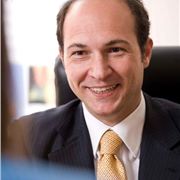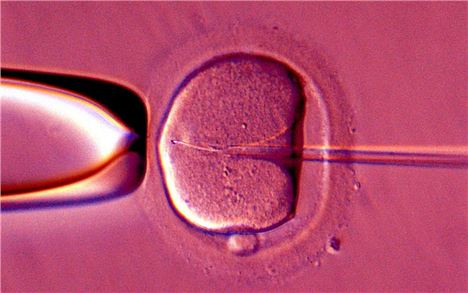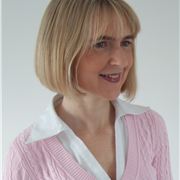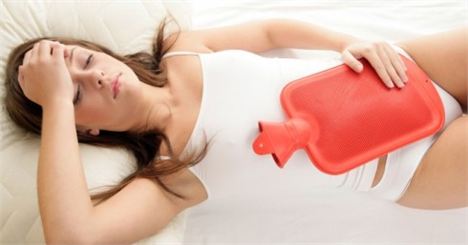THERE are certain health-related questions we would all like to know the answers to.
You know, the really personal questions that bring up information overload and scary answers when you try and consult Google.
This year, Body Confidential has a range of experts in specific fields, both medical and holistic, to answer any health-related concerns you may have. And we really do mean anything.
Simply fill out the form (anonymously if you’d prefer) at the bottom of this article and your Q&A will appear on the site in the coming months.
This month, Dr Luciano Nardo – a consultant in gynaecology and reproductive medicine, and Celia Cooper – a specialist in nutritional medicine, answer your questions...
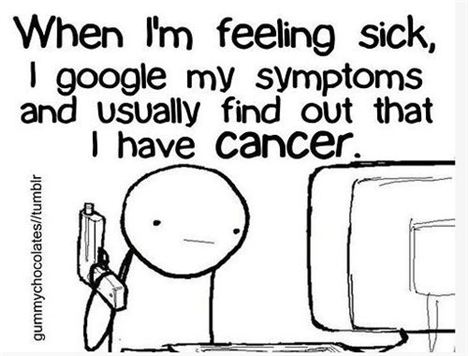 Don't Google Your Symptoms. Ask Our Experts.
Don't Google Your Symptoms. Ask Our Experts.
Q: Is it worth continuing with IVF after three failed attempts?
A: It depends on why IVF has failed before. If it’s failed because there weren’t suitable eggs or sperm, then the answer is probably no, treatment should not continue and options such as egg donation or sperm donation should be discussed with the couple.
If IVF has failed more than three times and the couple has been fully investigated, we would have to look carefully at the treatment cycles and where it failed at each stage. If all investigations haven’t been done, the couple should be fully investigated. This is why I’m of the belief all investigations should be done in the beginning rather than waiting for the treatment to fail.
Both partners should be investigated and investigations should be carried out at different levels – the first to assess if the ovaries and testicles work, the second by doing an ultrasound scan and the third to investigate the uterus.
The uterus is the main container where the pregnancy develops yet very often the importance of the uterus is neglected. An abnormal tissue within the uterus such as a polyp or an abnormal mass such as a fibroid or development abnormalities could be responsible for failed IVF.
I often see patients who have had repeated failed IVF cycles either under my care or elsewhere but before saying 'no we can’t offer any more treatment', I normally critically appraise their previous IVF cycles and look into possible alternatives. It’s also good to put these discussions to other colleagues to overcome any biases towards what the clinic offers without looking at the broader spectrum of treatment available.
Unfortunately there is an element of luck which is out of our control but there is also an element of knowing exactly what the problem is.
The key is to individualise treatment to the patient’s specific needs first and foremost, investigating and diagnosing the problem before offering specific treatment.
In summary, I don’t think there is a maximum number of IVF attempts after which treatment should be stopped. It depends on the performance and why it’s failed.
Q: I am in my late 30s and single. Can I freeze my eggs?
A: Yes - this is called social freezing. It’s different from freezing where there are clinical indications, such as women with breast cancer or blood cancer where they may require chemotherapy or other forms of treatment that may impair their ovarian function.
Social freezing is becoming very popular because the success rate has increased significantly with new freezing techniques. Also more women are choosing to start a family later in life for different reasons and therefore women are becoming more aware of options to preserve their fertility.
If we look at the number of patients who approach me about freezing their eggs, around 85 per cent are women with no partner. That’s the reason why they decide to freeze their eggs.
The other 15 per cent may have partners but they’re not sure if they’re ready to start a family. The difference is, if you are in a stable relationship and you know you will want to start a family later on in life, you’d consider freezing embryos (fertilised eggs) rather than eggs. Embryos have a much better chance of success.
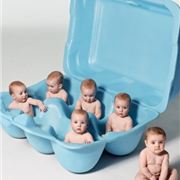 In egg freezing, you will need to have between 10-12 frozen eggs to achieve a live birth. There are of course risks associated with the freezing process where eggs might not survive. Not all eggs that survive will get fertilised and not all eggs that get fertilised will develop to form a normal embryo which is why you need a good number of eggs to start with. That will provide you with the best chance of success.
In egg freezing, you will need to have between 10-12 frozen eggs to achieve a live birth. There are of course risks associated with the freezing process where eggs might not survive. Not all eggs that survive will get fertilised and not all eggs that get fertilised will develop to form a normal embryo which is why you need a good number of eggs to start with. That will provide you with the best chance of success.
What’s the secret to making it successful? Advising women when they have the best chances, regardless of age.
A woman in her late 30s with a very good ovarian reserve would be wise to freeze her eggs. Whereas for a woman in her early to early 30s with sub-optimal ovarian reserve it probably wouldn’t work.
The most important thing to stress is there is a significant difference between men and women. To assess the reproductive potential of a man, all we need is a semen sample to make a direct assessment of testicular function.
For women it’s difficult because the ovaries are within the body so they can’t produce eggs on demand and have these eggs assessed. The only way to do so is by stimulating the ovaries, collecting the eggs and observing them under a microscope, which means having some sort of IVF treatment.
So the advice is, if you are in your 30s and you want to have a family but you have a reduced ovarian function (as shown by blood tests or a scan), then the next step would be to stimulate your ovaries and collect the eggs. That would give you your final answer. If you know you have good eggs, then they can be frozen. The cost is normally between £3,000 and £4,000 depending on the dose of medications required.
Dr Luciano G Nardo is a Consultant in Gynaecology and Reproductive Medicine. He is a Director of Conceive International and GyneHealth (0161 834 6065 or email info@gyne-health.co.uk) - a comprehensive multidisciplinary independent sector service for women's health. He sees private patients regularly at his clinics in central Manchester, Cheshire and London, and is supported by a team of consultant colleagues, specialist nurses, counsellors, acupuncturists, reflexologists, dieticians, physiotherapists and administrative staff.
Q: How is diet affecting my menstrual cycle?
A: Everything we eat, all the vitamins and nutrients we take in, has an impact on our bodies in some way. Hormones produced during the menstrual cycle, such as oestrogen and progesterone, are needed to maintain health. Changes in hormone levels have a great impact on the menstrual cycle. Since hormone production is affected by diet, it follows that diet affects the menstrual cycle as well. A lot of people don’t always make that connection between diet and hormones.
It’s therefore important to make sure you’re getting the right kind of nutrients and fats. A lot of women are still scared of having fat in their diet and think fat is bad when actually you need a certain amount of the right kind of fats.
Omega 3 is an essential fatty acid from oily fish, some nuts and seeds. If the body is lacking in essential fatty acids it’s not able to produce the right amounts of hormones it needs. The fats are the building blocks of prostaglandins (hormone like substances).
If I was treating a lady with PMS we would look at making sure they’re getting right kind of fat in their diet, magnesium, B vitamins and chromium and check their blood sugar levels. The most common thing I see is women with poor blood sugar balance. With that you’ll have peaks and troughs in the day where you’re then reaching for the caffeine, sugary snacks refined carbohydrates and anything that’s heavily processed. Then your body is pumping out insulin to bring it back down. Crashes and dips cause cravings for sugar and food and that puts the body under a lot of stress. Blood sugar balance is fundamental to some women with PMS or Polycystic Ovaries Syndrome.
With the right dietary changes, it doesn’t take that long to notice the difference depending on what someone has come with but you can often get results in as little as six weeks. People put up with an awful lot of symptoms for a very long time.
Q: Can diet improve fertility?
A: There’s a lot of evidence to support that it can. A healthy diet and lifestyle are important at any time but especially so when planning a pregnancy or experiencing problems with subfertility - not just for women in these situations but for their male partners as well.
One example is being under or over weight. Women who get their BMI to a healthy level can increase the chances of IVF working or indeed conceiving naturally.
 Making sure the woman and the man are both containing plenty of zinc, vitamin C, selenium and essential fatty acids is important. As is not having too many toxins such as caffeine and alcohol and making sure blood sugar levels are balanced.
Making sure the woman and the man are both containing plenty of zinc, vitamin C, selenium and essential fatty acids is important. As is not having too many toxins such as caffeine and alcohol and making sure blood sugar levels are balanced.
Polycystic Ovary Syndrome can affect fertility and it quite often means the patient might be struggling with their weight as it affects the way your body deals with insulin. Making sure your diet is rich in antioxidants, zinc, selenium, folic acid will help. It can also be a very stressful time when a couple are trying for a baby and stress itself can be very inhibiting. So we look at lifestyle, make sure they’re not over exercising. I never use fad diets or quick fix it’s all about the way to eat long term. There are some things to be more mindful with fertility but generally the diets we recommend are for life. It’s got to be sustainable. What you want to do is give yourself the best chance of getting pregnant and that means ideally being as healthy as you can be.
Celia Cooper has a degree in Nutritional Medicine from Thames Valley University, she is a member of BANT (British Association for Applied Nutrition and Nutritional Therapy). She works with GyneHealth specialising in women's health and fertility. She also practices from her clinic, Precious Health (07802 281312 or email info@celia-precioushealth.co.uk) in Hale helping people with a wider range of health concerns.




